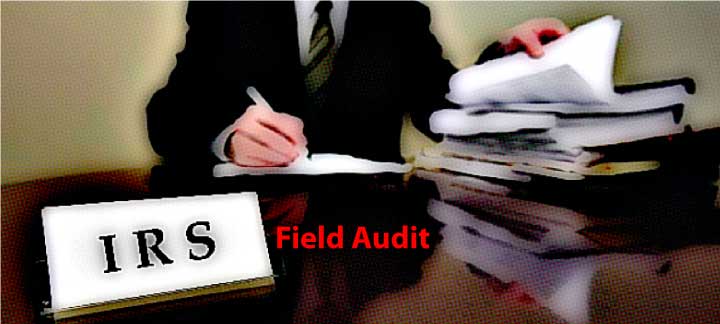IRS Audit Methods – Field Audit
There are several kinds of IRS audits. If your tax return has been selected for an audit, the IRS audit letter you receive should indicate the type of IRS audit process that you will be going through.
What is a Field Audit?
A field audit is the most detailed kind of IRS audit. In a field audit, an IRS representative will come to the taxpayer’s home or place of business to examine records. The field audit is performed by an IRS Revenue Agent. IRS Revenue Agents are generally more skilled and knowledgeable than other IRS representatives. Revenue Agents may be accountants and many have substantial accounting coursework and specialized training. Many Revenue Agents also specialize in certain industries.
How Will I Know I Have Been Selected for a Field Audit?
As with other forms of audit, the audit letter you receive from the IRS will indicate the type of audit the IRS will perform. If you have been selected for an IRS Field Audit, the letter you receive will state that the IRS is requesting a meeting to review your tax records for a particular year. The Field Audit letter will generally contain a list of documents that you must be prepared to present at the time of the audit.
Where and When Will the Field Audit Take Place?
The IRS letter will indicate the date and time for the field audit to take place. Field audits take place at the taxpayer’s home or place of business. The letter will include audit preparation instructions as well as a telephone number to reschedule the audit, if necessary.
What Can I Expect During a Field Audit?
The field audit may last from one day to a week, depending on the size of the taxpayer’s business. For individual taxpayers subjected to a field audit, the length of the audit will be shorter than for complex businesses. When the IRS Revenue Agent arrives to perform the audit, he or she will generally review financial records, interview employees (if applicable), and tour the business facilities (if applicable).
If you are an individual taxpayer, the revenue agent will review the requested records and interview you. When conducting a field audit of a business, the revenue agent will interview employees about the key operations of the business, including processes, accounting procedures, management structure, and internal controls.
Strategies for Surviving a Field Audit
Field audits are by far the most intrusive and serious form of audit. If you are selected for a field audit, it is extremely important that your tax preparer or attorney is present at the time of the audit. The IRS Revenue Agents conducting the field audit are more sophisticated than other IRS representatives. Every question they ask you is designed to elicit more information from you. For that reason, it is important to only answer the question asked in the simplest manner possible. Never offer additional information to the IRS Revenue Agent, because if you do, that can be grounds for the agent to expand the scope of the audit.
When is a Tax Attorney Necessary?
If you are aware of any understatements of income, overstatements of deductions or if your tax return may have contained false or misleading information, then it is wise to seek the counsel of an experienced tax attorney. A tax attorney will know your rights and be much more familiar with the strategies that an IRS agent will use to elicit information from you during the audit.
The Tax Lawyer – William D Hartsock offers free consultations with the full benefits of attorney client privilege. Call today to schedule your free consultation.



Comments (0)